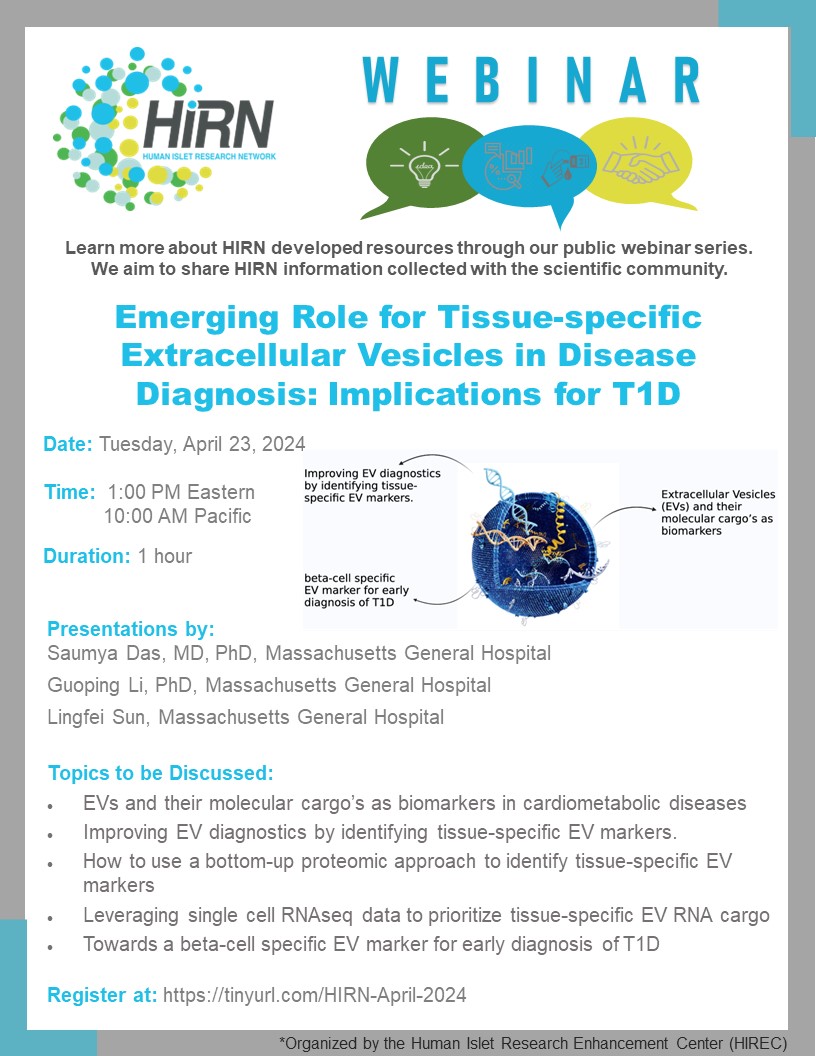Leaving Community
Are you sure you want to leave this community? Leaving the community will revoke any permissions you have been granted in this community.
Data Updates For TrialNet 01, TEDDY, GLUMIT, PROBE, LOGIC, CRIC, EPISOD, DCCT/EDIC At NIDDK Central Repository
Here is the data updates news from NIDDK Central Repository:
"1. TrialNet 01 [TrialNet Pathway To Prevention (formerly Natural History Study) (TN01 NH)]: Data have been updated for the TrialNet Pathway To Prevention (formerly Natural History Study) (TN01 NH). The primary aim of the study is to identify subjects for TrialNet prevention and investigation trials, but can also be used for assessing the predictive value of existing and novel risk markers of T1D, and for examining the demographic, immunologic, and metabolic characteristics of individuals at risk for developing T1D.
2. TEDDY (the Environmental Determinants of Diabetes in the Young): This update includes eight additional analysis datasets (M180, M102, M45, M124, M74, M53, M113, and M38a on March 12, 2019), three additional analysis datasets (M34, M109, and M21 on May 10, 2019), and seven additional analysis datasets (M106a, M127, M138, M160, M165a, M165b, M177 on May 31, 2019). The TEDDY study is a multicenter prospective cohort study that was established in response to these gaps in understanding of T1D. The primary objectives of the study include identifying environmental factors—such as infectious agents, dietary factors, and psychosocial factors—that trigger or protect against the development of islet autoimmunity and T1D and examining genetic-environmental interactions to investigate interactive effects that contribute to T1D.
3. GLUMIT (the Continuous Glucose Monitoring and Insulin Pump Therapy in Diabetic Gastroparesis) Study: Analysis data are now available for request from the Continuous Glucose Monitoring and Insulin Pump Therapy in Diabetic Gastroparesis (GLUMIT) study. The Safety, Feasibility, and Potential Efficacy of Continuous Glucose Monitoring and Insulin Pump Therapy in Diabetic Gastroparesis (GLUMIT-DG) study is a multicenter, uncontrolled clinical trial that was established by the Gastroparesis Clinical Research Consortium (GpCRC) to assess the safety and utility of CGM in guiding insulin pump therapy in patients with type 1 and type 2 diabetes and gastroparesis.
4. PROBE (the Prospective Database of Infants With Cholestasis) Study: Data have been updated for the Prospective Database of Infants With Cholestasis (PROBE) study. The data package now includes an additional analysis dataset (Shneider) from a publication. PROBE is a multi-center project to establish a prospective database of clinical information and a repository of blood and tissue samples from children with diagnoses of neonatal liver diseases, such as biliary atresia and neonatal hepatitis, in order to perform research in these liver problems.
5. LOGIC (the Longitudinal Study of Genetic Causes of Intrahepatic Cholestasis) Study: Data have been updated for the Longitudinal Study of Genetic Causes of Intrahepatic Cholestasis (LOGIC) study. The data package now includes two additional analysis datasets (Techman and DXA) from two publications. LOGIC is a observational study with the objectives to determine the frequency of poor growth and decreased bone mineral density and its predictors; identify modifier genes that influence the incidence, severity, and progression of liver disease among affected individuals; and develop a repository of biospecimens to be used in ancillary studies of predictor biomarkers.
6. CRIC (the Chronic Renal Insufficiency Cohort) Study: Data have been updated for the Chronic Renal Insufficiency Cohort (CRIC) study. Data from CRIC Phase 3 are now available. Additional data from Phase 1 were updated. The Chronic Renal Insufficiency Cohort (CRIC) Study is an observational study that examined risk factors for progression of chronic renal insufficiency (CRI) and cardiovascular disease (CVD) among CRI patients. The study enrolled adults aged 21 to 74 years with a broad spectrum of renal disease severity, half of whom were diagnosed with diabetes mellitus. Subjects underwent extensive clinical evaluation at baseline and at annual clinic visits and via telephone at 6 month intervals. Data on quality of life, dietary assessment, physical activity, health behaviors, depression, cognitive function, health care resource utilization, as well as blood and urine specimens were collected. Measures of kidney function and occurrence of new and worsening CVD are the primary outcomes, among others.
7. EPISOD (the Evaluating Predictors and Interventions in Sphincter of Oddi Dysfunction): Data have been updated for the Evaluating Predictors and Interventions in Sphincter of Oddi Dysfunction (EPISOD). Data from the follow-up period are now available for request. The EPISOD trial is a parallel, randomized, double-blinded, sham-controlled, multicenter Phase III clinical trial of endoscopic sphincterotomy as treatment for adults 18 to 65 years of age diagnosed with SOD III.
8. DCCT/EDIC (the Diabetes Control and Complications Trial/Epidemiology of Diabetes Interventions and Complications) study: Data have been updated for the Diabetes Control and Complications Trial/Epidemiology of Diabetes Interventions and Complications (DCCT/EDIC) study. The data package now includes the Optimal Frequency of Retinopathy (Optimret) analysis data. The Diabetes Control and Complications Trial (DCCT) was a multicenter, randomized clinical trial designed to compare intensive with conventional diabetes therapy with regard to their effects on the development and progression of the early vascular and neurologic complications of type 1 insulin-dependent diabetes mellitus. The Epidemiology of Diabetes Interventions and Complications (EDIC) study was initiated as follow-up to examine the long-term effects of the original DCCT interventions on diabetic complications such as cardiovascular events and advanced retinal and renal disease."
Source information:
https://repository.niddk.nih.gov/news/#post-118
https://repository.niddk.nih.gov/news/#post-119
https://repository.niddk.nih.gov/news/#post-120
https://repository.niddk.nih.gov/news/#post-121
https://repository.niddk.nih.gov/news/#post-122
https://repository.niddk.nih.gov/news/#post-125
https://repository.niddk.nih.gov/news/#post-127
https://repository.niddk.nih.gov/news/#post-128
https://repository.niddk.nih.gov/news/#post-129
https://repository.niddk.nih.gov/news/#post-130






